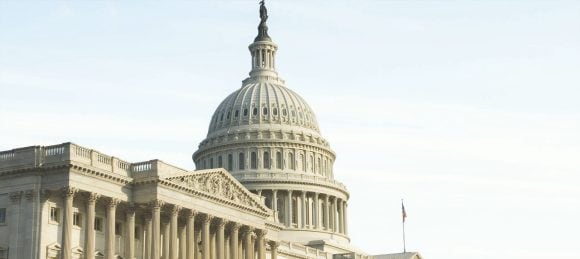Washington Weekly: Any October Surprise?
Governmental Affairs US, 11 October 2024

![]()
header.search.error
Governmental Affairs US, 11 October 2024

This Month:
The Senate and House will be out of session until after the elections.
The Lead
Election history in the US is replete with “October Surprises,” late and unexpected developments that can sway the election outcome. In perhaps the first one in 1840, supporters of incumbent Democrat President Martin Van Buren lodged accusations that the opposing Whig Party was buying votes of some Pennsylvania voters. While the Whigs acknowledged this, this bombshell didn’t secure victory for the unpopular Van Buren. He went on to lose to William Henry Harrison, who died a month into office (still on record for the shortest presidency in history). More recently, the 2016 election had a couple of surprises in the last month of the election. From FBI Director Jim Comey’s announced reopening of an investigation of Hillary Clinton’s private and public use of her email server to the release of a videotape of Donald Trump bragging about his celebrity status and sexual exploits. Will we see any October Surprises this month? We discuss some possibilities below.
The Elections
In the run up to election day, every new poll seemingly generates headlines about projected winners and losers. While imperfect, polling is still an important tool for reading elections. That being said, most of the polls on which the media focuses are national polls, which aren’t the most important surveys. Instead, polling in the battleground states (AZ, GA, MI, NC, NV, PA and WI) provides the most important metrics. When looked at individually and in the aggregate, all seven states are within the margin of error. Both Vice President Harris and President Trump having a realistic shot at winning each of them. The reality is that either candidate can win any of these seven states, and this race (based on the outcome in these seven states) is just too close to call for now.
For better insights into the intricacies of polling, check out the interview that Colin Craib in our office conducted last week with award-winning national pollster Ben Tulchin here.
With recent polling showing an incredibly close race, especially in the swing states, we should also consider just when we will know who won. In 2020, it took four days for Pennsylvania – and the election – to be called for President Biden due to the closeness of the race and the large amount of mail ballots that had to be counted. Some states have since made improvements to their election processes, and 2024 will likely have fewer mail ballots than in 2020. Nevertheless, we likely won’t know the final results for at least a few days. Many of the swing states are especially vulnerable to delays. Arizona and Nevada both conduct their elections primarily by mail, and both took multiple days to count all of the statewide votes in 2022. Pennsylvania and Wisconsin will have a smaller percentage of mail voters, but both states’ ballot procedures prohibit election workers from beginning any of the ballot pre-processing procedures until after polls officially close on election day. This will likely lead to another “red mirage” where both states show elevated vote counts for Republicans early in the night and a catch-up by Democrats as mail ballots are counted later. While tallying up ballots likely won't take as long as 2020, it's safe to say that if the election is as close as it is predicted to be, it’s unlikely that we will know the result by bedtime.
As both candidates are laser-focused on executing their final strategies to get to 270 electoral votes and victory in November, it’s become clear that one state will have an outsized influence: Pennsylvania. With the Harris and Trump campaign focusing on different pathways to 270 electoral votes (MI, PA and WI for Harris, GA, NC and PA for Trump), the Keystone State and its 19 electoral votes (the largest of any swing state) is the common denominator. Indeed, we believe that the state has the best chance of being the “tipping point” state that will push either candidate over the 270 electoral votes needed to win. In both 2020 and 2016, the tipping point state was Wisconsin. Over the next 25 days, the two candidates, as well as their running mates and surrogates, will be in PA more than any other state for a reason.
Election day hasn’t arrived yet, but litigation around voting practices and rules is in full force now. Over 90 lawsuits have already been filed across the country by various Republican groups this year, more than triple than what was filed before election day in 2020. These efforts are questioning various state practices and could be laying the groundwork to contest some election results. These efforts will generate headlines and could extend final election results depending how they are addressed by the legal system.